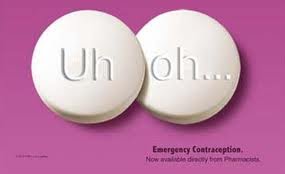Emergency contraception vs. Abortion: everyone wants to know the difference. Unfortunately there are many misconceptions to the differences found in emergency contraception vs. abortion. Some believe them to be the same thing, but in reality this is far from the truth.
Many individuals in the public believe emergency contraception and abortion to be the same thing, which is why there is often such an outrage from individuals, groups and religious organizations to the availably of the emergency contraception pill, which is available over the counter without a prescription for women over the age of 17, in most states. To dispel these misconceptions about emergency contraception and abortion being the same idea – to medically induce a miscarriage – we are going to take a look at abortion vs. emergency contraception by looking at what each does and how it works to prevent or end a pregnancy. Keep reading to learn more about emergency contraception vs. abortion.
Emergency Contraception:
In the stores, EC is often referred to as the Morning After Pill or by its brand name: Plan B, Next Choice or Ella. Depending on the type of emergency contraception, you can get this medication in most pharmacies over the counter. If you are under the age of 17 in most states, you have to have a prescription or a parent’s permission. EC contains hormones similar to what is is the normal birth control pill, but simply more that work to effectively prevent a released egg from implanting if it is indeed fertilized. Because most members of the medical community including the American College of Obstetricians and Gynecologists as well as the United States Department of Health and Human Services have taken the stance that pregnancy actually begins with a pre-embryo completes implantation into the lining of the uterus, preventing that process from happening is not considered abortion.
The emergency contraception is often most effective the soonest it is used after failed contraception or no contraception is used. Plan B and Next Choice are only considered to be effective if started with 120 hours of unprotected intercourse. The sooner the pill is taken, the better chance it has at preventing implantation and therefore pregnancy. There are other types of emergency contraception that only work by preventing ovulation or fertilization, which means the time frame in which it can be effective is even less because once the egg has been released and fertilized, it will no longer work to prevent pregnancy. The effectiveness of emergency contraception shows that if it is used within 72 hours after unprotected sex, it is about 75 percent effective. It is about 89 percent effective if used within 24 hours of unprotected intercourse. EC is considered to be safe for almost all women that take it. When considering the difference between emergency contraception and the medicated abortion, it is important to recognize that after the egg has fertilized and implanted with the uterine lining, the pregnancy cannot be ended by taking emergency contraception and will therefore not cause an abortion.
EC can be purchased over the counter at most pharmacies for women and men over the age of 17. You can also get a prescription for the medication from your local Planned Parenthood or other women’s health center. The medication typically costs anywhere from $10 to $70.
Medicated Abortion:
On the other hand, medicated abortion does exactly that. The abortion pill (also known as Mifepristone, Mifeprex or RU-486) works to induce abortion if used within 63 days after the first day of the last menstrual period. It is used with another medication (Misoporostol) which is used to complete the abortion. It works to end the pregnancy by blocking the hormones that are necessary to maintain a healthy pregnancy. The second mediation is used to cause the uterus to contract and empty. A medicated abortion is highly effective if used within the time frame. It is also supervised by a doctor to ensure the induced miscarriage is successful and does not cause excessive bleeding or other complications with the pregnant woman. This process is considered safe for most women. There are risks associated with it however, just like with other abortion procedures. There is a rare case of death that has been reported with all types of abortion. However, it is still considered safer than carrying a pregnancy to full term.
A medicated abortion can be done at an local Planned Parenthood or through a private clinician. They typically cost about about $350 to $650.
Sources: plannedparenthood.org
